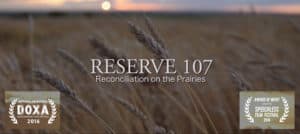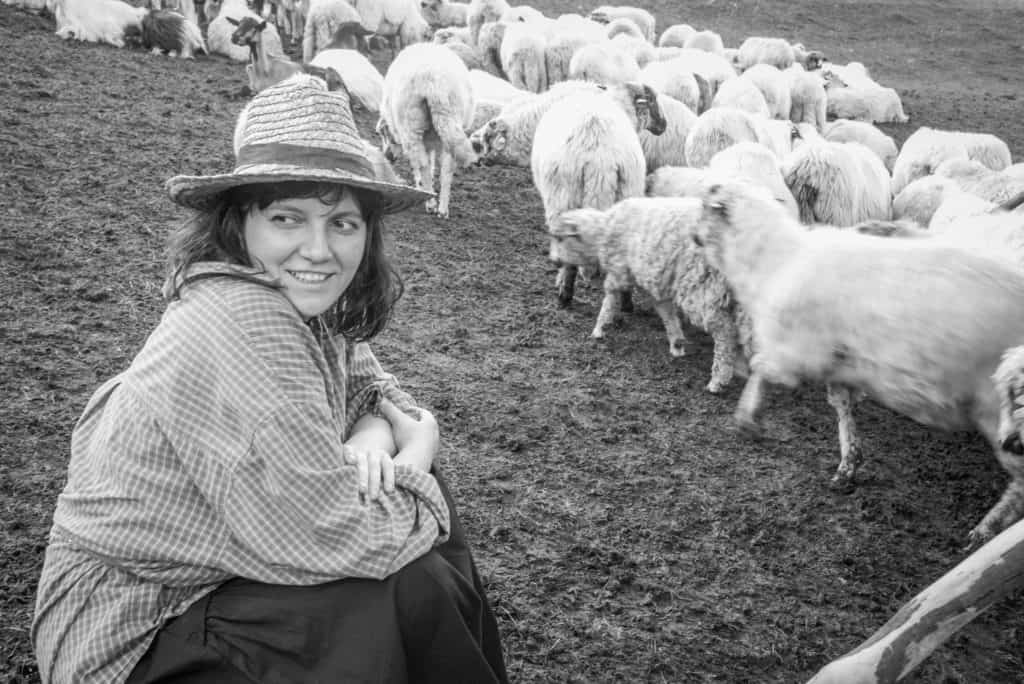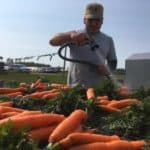

Our 2018 theme – Unleashing the Potential of Food Sovereignty – challenges the government’s corporate-led Barton Report, Unleashing the Growth Potential of Key Sectors, contrasting it with Food Sovereignty’s potential to drive community-based prosperity. By empowering farmers, workers and consumers, we can retain the wealth and income we create and use it locally to build an economy that also enriches us socially, culturally, ecologically, and aesthetically.
Dates: November 21 evening, November 22 – 24 all day
Times: Nov. 21 pre-Convention social, registration and free film screening 7 – 10 PM
Nov 22 – 24 Registration opens 8 AM
Nov 22 – Public Event – keynote speaker 7 PM
Nov 23 – Banquet and Dance 6:30 PM – midnight (banquet tickets available at Convention desk until noon)
Location: Hilton Garden Inn, 90 – 22nd Street East, Saskatoon, SK (map)
Registration
Registration is at the door
Registration fees:
$175: NFU delegates/members and non-members (includes spouse and dependent children under the age of 21 attending with main registrant) for entire convention
$ 85: Per day for those not attending the entire convention
$ 15: Per day for students & NFU youth (ages 14-25)
Meals are not included in registration fees.
For Hotel room reservations: call 1-306-244-2311 or email reservations@hgisaskatoon.com and use booking code NFUDEL.
Getting here
Take the train! VIA Rail offers NFU convention attendees a 10% discount off the best available fare in Economy, Economy Plus, Business, Business Plus or Sleeper class for travel from all stations throughout the VIA system to Saskatoon and return, from November 17th to November 25th 2018. One free stopover is allowed. Maximum 2 passengers per booking. When booking, refer to the VIA convention discount code: 13773.
Click here for the full Convention Agenda
Convention Sponsors

Convention Social Events
Wednesday, November 21:
Film screening: Modified 
At the Wednesday evening social event at the hotel, watch the award-winning documentary, Modified. The filmmaker and her mother investigate why GMOs are not labeled in the USA Canada. Their quest, fuelled by love of food, reveals the extent to which the agribusiness industry controls our food policies, making a strong case for a more transparent and sustainable food system. Lucy Sharratt from CBAN will lead a discussion following the film. View the official trailer.
Friday, November 23:

Banquet and Dance
Enjoy a meal with your NFU friends, celebrate achievements of our Grassroots leaders, and kick up your heels at the dance. Music by Zen with the Beans, featuring well-known Saskatoon singer Wilma Groenen. 6:30 til Midnight. Banquet and/or Dance tickets are available at the Registration table until noon Friday.
Program Highlights
Thursday November 22:
Pre-Convention Workshop: Reserve 107 documentary and panel discussion

For decades, stories have spread throughout the village of Laird, Saskatchewan. It has been said that First Nation descendants of an old treaty have visited shopkeepers and town officials. The First Nations that came to the town, starting in the 1970s, insisted that a treaty signed between their people and the government of Canada states the land of the locals actually belong to an Indigenous First Nation. But when a group of Mennonites and Lutherans in the town of Laird discover that the land they live on is in fact the former reserve of the Young Chippewayan First Nation, they are forced to acknowledge the history that has brought them to their present confrontation. A chief and descendant of the Young Chippewayan Band decide to invite the local community to a meeting at the central site of the former reserve as members in the town remain on edge. But an inevitable encounter at the towns historic site compels the characters into a surprising discovery. Myths, assumptions and fears are shattered as this old injustice is about to provide an opportunity for friendship and renew a fierce determination to repair the wrongs of the past.
Mística
New this year, we will have a Mística, a ceremonial practice popularized by Brazilian peasants and now commonly used throughout La Via Campesina’s global movement. It is used to open meetings and other collective spaces, and often includes elements of theater and song. It encourages us to become fully present in a shared space, to consider our higher common goals and to set a shared intention for our time together.
Keynote speaker Ramona Dominicioiu
The Transformative Potential of the United Nations Declaration of the Rights of Peasants
Invite friends, family and allies to join us Thursday evening for the free public event with keynote speaker Ramona Dominicioiu. She is a dynamic young leader in the Romanian peasants’ organization, Eco Ruralis. She is working on the UN Peasants Rights Declaration and helped establish TTIP/CETA-free zones in Romania. Her organization is a member of the Nyeleni Europe food sovereignty movement and of La Via Campesina. La Via Campesina is the world-wide farmers’ movement that originated the concept of Food Sovereignty, which it describes as “an approach and process developed by the people most threatened by the processes of the consolidation of power in food and agricultural systems: peasant farmers. Instead of being destroyed by the forces of history they are offering a proposal to solve the multiple crises which humanity is facing.”
Friday November 23:
Panel Presentation: Unleashing the Potential of Food Sovereignty
Our speakers will contrast our vision with the government’s, look at how Food Sovereignty-inspired policy would empower people and bring well-being to communities, and discuss how we can make it happen by working together. The panel presentations will be followed by a lively Q&A session. The panel presentations will be followed by a lively Q&A session. Speakers: Av Singh, Bryan Dale, Nettie Wiebe

Av Singh is one of Canada’s leading authorities on organic agriculture. After completing his post-doc at the University of Minnesota on pasture-based livestock production, Singh worked at the Organic Agriculture Centre of Canada and served as the Organic and Small-Scale Farming Specialist in Nova Scotia, for over 15 years, and recently held the Just Us! Chair in Small Farm Sustainability. He generously shares his knowledge in writings and presentations around the world. Visiting over 2000 farms across five continents has shaped his extension of holistic, system-based design solutions. He emphasizes a union of traditional knowledge with science, and works with growers to cultivate an appreciation of plant:soil interrelationships. He is currently involved in developing Canada’s cannabis industry, is Vice-President of the Canadian Organic Growers and a proud member of the National Farmers’ Union.
Bryan Dale is completing a PhD in Human Geography at the University of Toronto. His research looks at the connections between food sovereignty, agroecology, and climate change mitigation. While his Master’s research analyzed La Vía Campesina’s international organizing on these issues, his doctoral work focuses on the Canadian context. As a scholar-activist, he has been an associate member of the NFU for several years, currently serving as the Treasurer for Local 305 (Toronto-York-Peel). He is also a member of the International Program Committee and the Indigenous Solidarity Working Group, and is a non-farmer member of Union Paysanne in Quebec as well.


Nettie Wiebe farms near Delisle, Saskatchewan, growing organic field crops as well as raising cattle. She held elected positions at the NFU for ten years, including four years as President. She was a philosophy professor at St Andrews College at the University of Saskatchewan, retiring in 2015. She was a founding member of La Via Campesina, and currently participates in the UN Food and Agriculture Organization’s Civil Society Mechanism on behalf of the NFU. She co-edited Food Sovereignty: Reconnecting Food, Nature and Community and Food Sovereignty in Canada: Creating Just and Sustainable Food Systems, published in 2011 and 2011 respectively. In 2018 Nettie was awarded an honorary doctor of laws degree from the University of Alberta.
Tapping into Food Sovereignty’s Super Powers
What could be unleashed if food and ag policy put the six pillars of Food Sovereignty into practice? Explore the possibilities in a focussed small group conversation and brainstorm about what we can do together to transform our food system. What could be unleashed if food and agriculture policy …
- focused on food for people?
- valued food providers?
- localised food systems?
- put control locally?
- built knowledge and skills?
- worked with nature?
Saturday November 24:
Standing up for Seed Sovereignty
The federal government is preparing to amend the Plant Breeders Rights Act to make farmers pay millions more each year to seed companies like Bayer, Syngenta, BASF and DowDupont by empowering them to collect royalties on crops grown from farm-saved seed. They plan to start with wheat and applying the system to other cereal crops, pulse crops, and other crop kinds later. Consultations are being held this fall, in person and online. Terry Boehm will speak about why the NFU opposes end point royalties, how they are linked to the trade deals and what farmers can do to stand up for seed sovereignty.

Terry Boehm served for many years on the NFU Board of Directors, including as President from 2010 until 2013. He is currently Chair of the NFU Seed Committee. He has a keen interest and expertise in international trade, biotechnology, intellectual property issues (mainly as they relate to seed), seed legislation, variety registration systems and rail transport legislation. He analyzes legislation, trade agreements, government papers and reports, academic journals and reports and corporate data and shares the knowledge he has gained with NFU members. Terry graduated from the University of Saskatchewan where he studied History, Economics and Political Science. He farms 4,000 acres (conventional farm with some organic acres) with his parents 70 kilometers south east of Saskatoon, growing wheat, durum, barley, yellow mustard, flax, canola, peas, and lentils.
Farmers Building Food Sovereignty
Farmers from across Canada will tell how they have unleashed something powerful in their own communities by bringing food sovereignty’s principles to their own farms.Speakers will be Kathleen Charpentier, Pierre-Olivier Brassard and TBA.

Kathleen Charpentier and Richard Griebel farmed south of Castor, AB for thirty eight years. During the last half of their time farming they focused on creating a parallel food system that follows the pillars of food sovereignty. In this personal story I will share the guiding principals of our farm. Regeneration: We are committed to ensuring the land is continually regenerated through the presence of our animals on the land. Responsibility: Instilled into all our practices and products is a dedication towards our environment, community and future generations. Relationships: Food is not simply a means of sustenance, it is an opportunity for social and ecological connection. The farm has successfully transitioned to the next generation. Check out us out at Redtail Farms.
Pierre-Olivier Brassard is a peasant born in northern Québec, now living and farming collectively in the francophone Acadian community of Rogersville located on the eastern shore of Canada on ancestral Mi’kmaq territory. He grows certified organic vegetables, fruits and cereals and raises different kinds of livestock with his three co-op partners in the Co-opérative Ferme Terre Partagée using a peasant agroecological model based on food sovereignty. The co-op sells directly to consumers through a 125-family Community Supported Agriculture program, four farmers markets and some local restaurants. Pierre-Olivier is active in l’Union Paysanne, and is involved in North American regional and youth articulation of La Via Campesina. He has farmed for 20 years and believes in the social, political, local, communal and historical responsibility of agriculture. He sees agroecology based on food sovereignty as a practice of social transformation and struggle against predatory capitalism, injustice and every form of oppression in the world.

New this year – Bring your own Topic!
Is there something else you’d love to discuss with other farmers? We will have space set aside for small group farmer-to-farmer sessions, led by and open to anyone at convention. If you want to lead a conversation, pick a time and add your topic to the sign-up sheet. If you want to join a conversation, just check the sheet to find out when and where it will be happening.
Back by popular demand – Turning the Tide Bookstore

Turning the Tide, Saskatoon’s best-known independent bookstore, will provide a book table again this year offering a selection of fiction and poetry, as well as non-fiction books on current events, sustainable living, and generally making the world a better place… plus cookbooks, children’s books, graphic novels, and magazines.